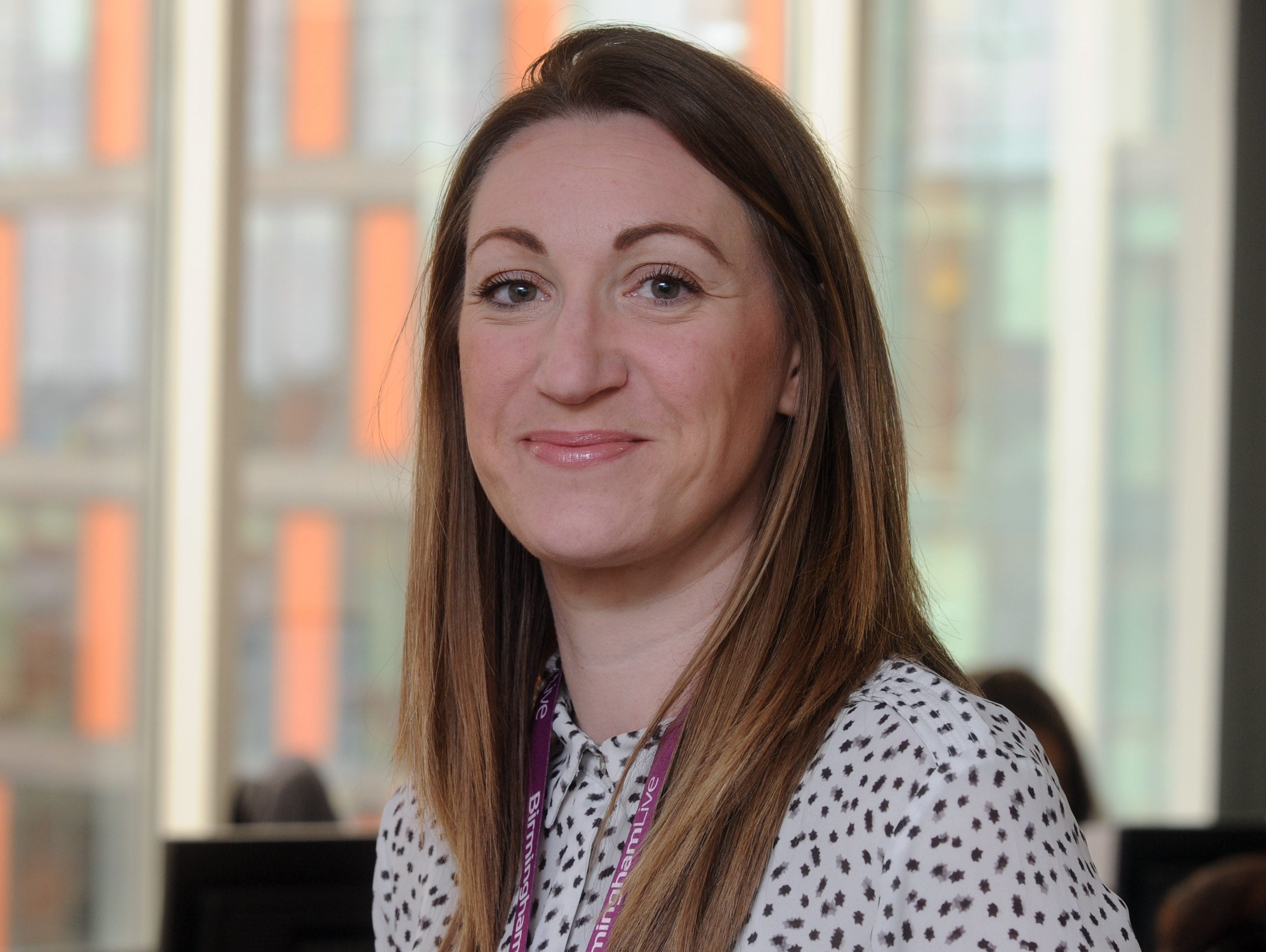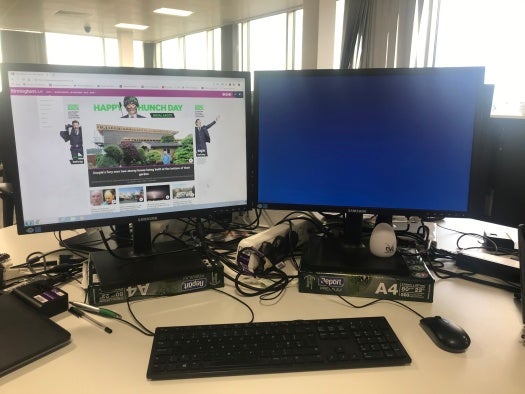
Birmingham Live editor Anna Jeys tells Press Gazette about overcoming her fear of public speaking, the importance of analytics and why newsrooms should put more focus on apprenticeships to gain diversity.
Jeys, 38, (pictured) has been in the news business for 20 years, more than half of which she’s spent reporting on Birmingham. She did a year’s NCTJ course at college rather than go to university, which she saw “only as three years standing in the way of me and working in a newsroom”.
Where did you catch your first break?
I landed a work experience placement at a local paper, doing one day a week for the length of my course. A job came up and I finished my course on the Friday and started the next week. On my first day I had to interview the local MP, which I remember being really nervous about.
What was your first paying journalism job like?
I was a general reporter on a weekly newspaper covering everything and anything that happened on the patch. It was a great grounding – court one day, council the next and everything in between – but the role of a journalist now is so much more complex than it was then.
Importantly, it was a newsroom full of talented, kind and patient journalists who helped build my confidence before releasing me to the world of a daily newspaper.
What made you want to become a journalist?
I’ve been fascinated by journalism for as long as I can remember. I still have recordings of me as child doing interviews with fictitious characters and school projects where I would pretend to be a newspaper editor.
I’m passionate about regional newspapers and the impact they can have on their community. Whether it’s getting someone moved from a mouldy council house or being mentioned in Parliament, journalism should have a positive impact – and be entertaining too.
What is the one thing you couldn’t do without as a journalist, and why?
Analytics. I sometimes try to remember what it was like to try to operate a news organisation without being armed with data, but it leaves me feeling nervous.
Analytics shouldn’t stop us trying new things but they undoubtedly help us make better decisions or interrogate why something didn’t hit the mark. It gives us an empathy with the reader that wasn’t possible when I first started in the industry.
What’s your biggest mistake / regret in your career?
I regret letting a fear of public speaking hold me back. I’ve always been nervous on stage – since forgetting some lyrics in a school play as a child. I forced myself to address it when I became senior editor of Reach Birmingham and signed up for ten events in three months. I’m much more comfortable now and wish I’d tackled it sooner.
What’s the most outrageous thing you’ve witnessed in a newsroom?
I don’t see much outrageous behaviour in the newsroom these days – and I like to think that’s because we are getting it right.
When I started in the industry, there were the old stories of the reporter whose office was the local pub, impromptu office table tennis tournaments and the scare stories of the angry editor who would shout or throw things if the splash wasn’t good enough.
Newsrooms are a different place now, and all for the better, in my opinion. I encourage an open and collaborative newsroom. We talk a lot – but we don’t shout, shock or scare. I don’t believe that’s the best way to encourage the creativity we need in journalism.
I need reporters to focus on the best way to tell a story – we are all too busy and too focused for table tennis.
If you could change one thing about the UK media industry today, what would it be?
The diversity of our newsrooms. The quicker our newsrooms become more reflective of our audiences, the better. There are good things happening in the industry, and initiatives like the Community News Project are helping, but we need to go further and faster.
We have to think about different routes to journalism as well, to make sure we are improving access to the industry for people from different backgrounds.
Apprenticeships are a really good example of this. As someone who entered the industry without a degree at a time when that wasn’t the norm, we have to promote a range of ways to get into newsrooms. If we don’t, we risk missing out on so many talented people and under-represented voices.
What is it you enjoy most about journalism?
The people are great. Journalists don’t have it easy – they have to have difficult conversations, deal with the never-ending criticism from online trolls and continually evolve their skills in a digital age.
Their determination and passion to tell stories never fails to surprise me. I also love the way that stories can connect with people. Seeing someone on the train or in the supermarket read one of our stories on their phone always makes me smile. It’s a real privilege – we are part of their lives.
Away from work, which newspapers, TV or radio news do you consume and why?
I read anything and everything depending on whichever headline or social post draws me in. The apps I have on my phone are Mirror, Guardian, BBC and Birmingham Live but I also read a lot of newsletters and Apple news.
I spend most of my time reading other Reach regional sites and getting annoyed that I didn’t think of their brilliant idea first. I love podcasts – usually comedy or crime.
What piece of work are you most proud of, and why?
More recently it would be the launch of Birmingham Live in February last year. We were the first of Reach’s existing brands to launch a new identity – which was equally exciting and terrifying.
We introduced a new newsroom approach and invested in a lot of training for staff and audience research to underpin it. Seeing the new Birmingham Live logo on billboards and buses made me feel immensely proud.
Following the launch and its success, the Live brand was rolled out to various different sites around the country. With that comes an enormous duty to define what Birmingham Live is about.
Any top tips for aspiring journalists?
Be prepared to change. The job of a reporter is unrecognisable now to the job I had but what’s never changed is the need to adapt. Be passionate and tenacious but most of all enjoy what you do – there is literally no other job like it.
Can you show us a picture of your workspace?

Picture: Birmingham Live
Email pged@pressgazette.co.uk to point out mistakes, provide story tips or send in a letter for publication on our "Letters Page" blog
